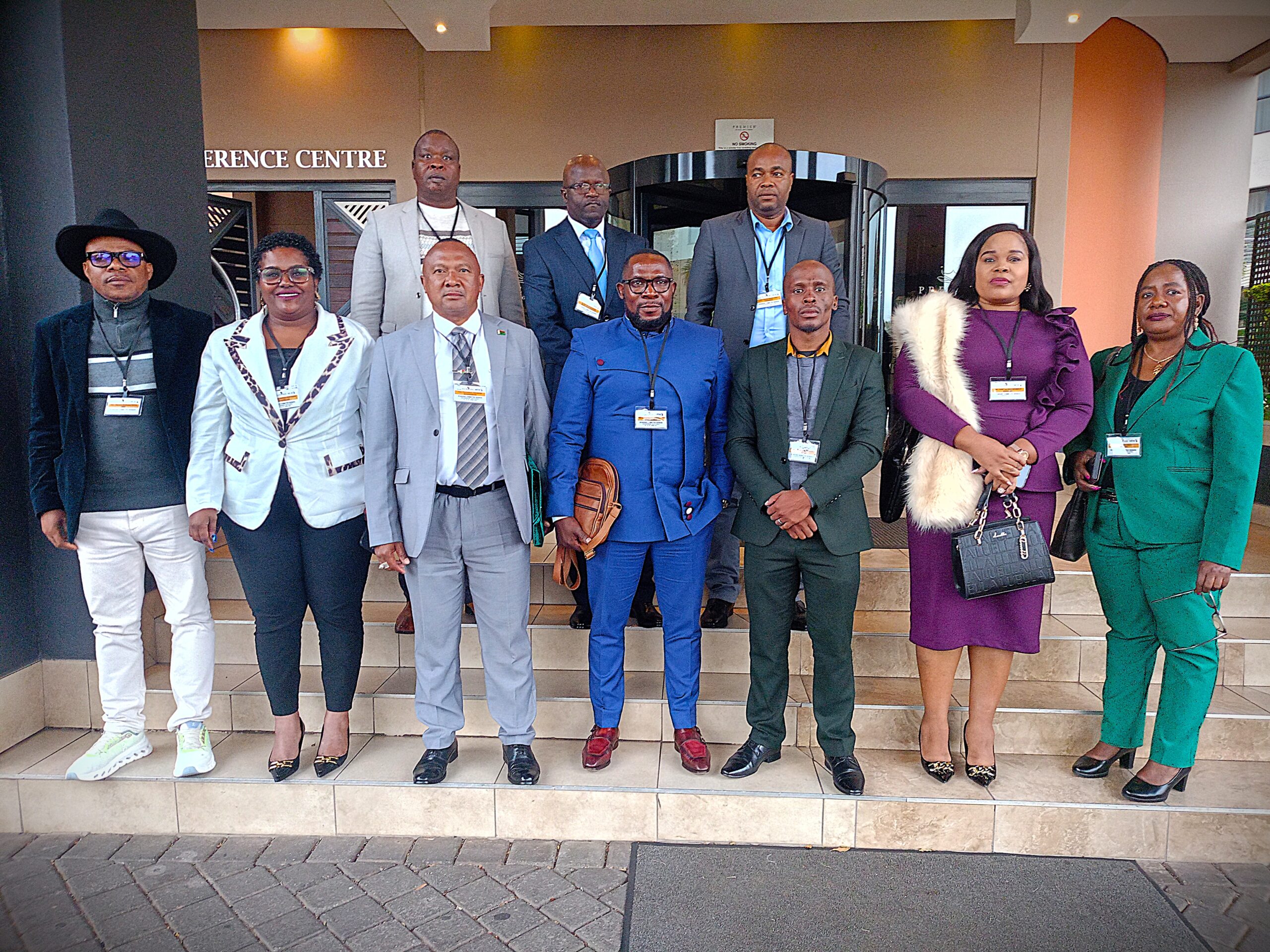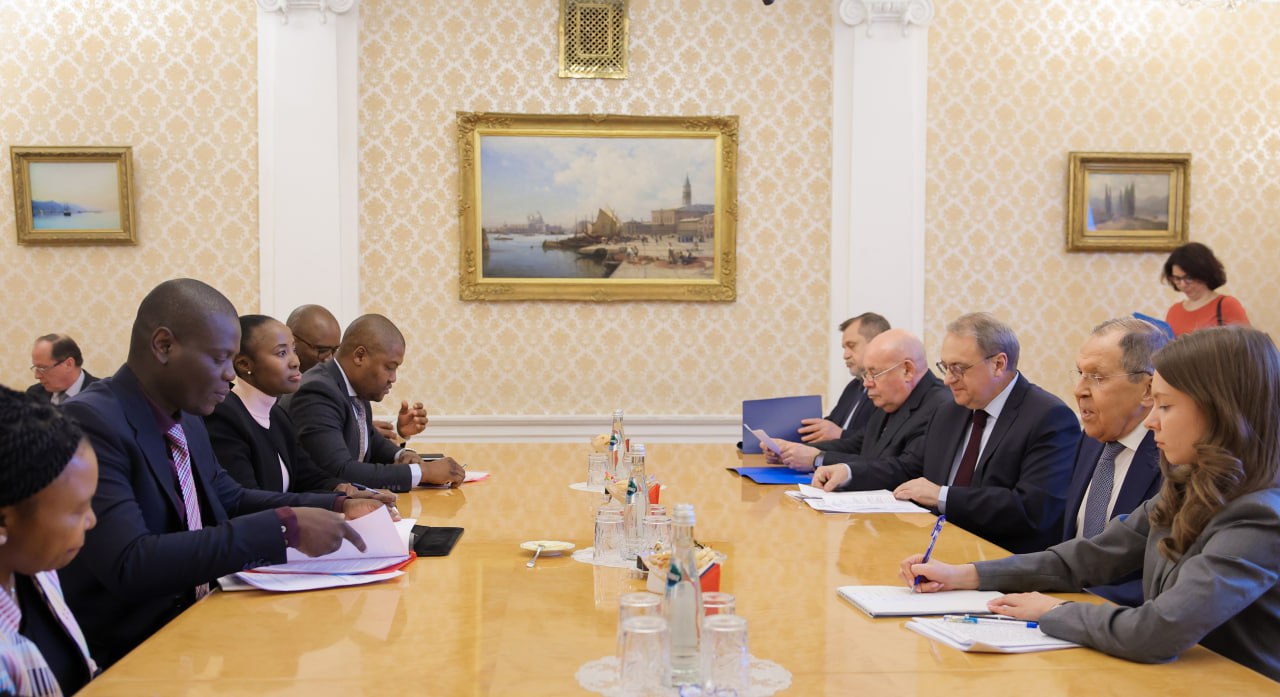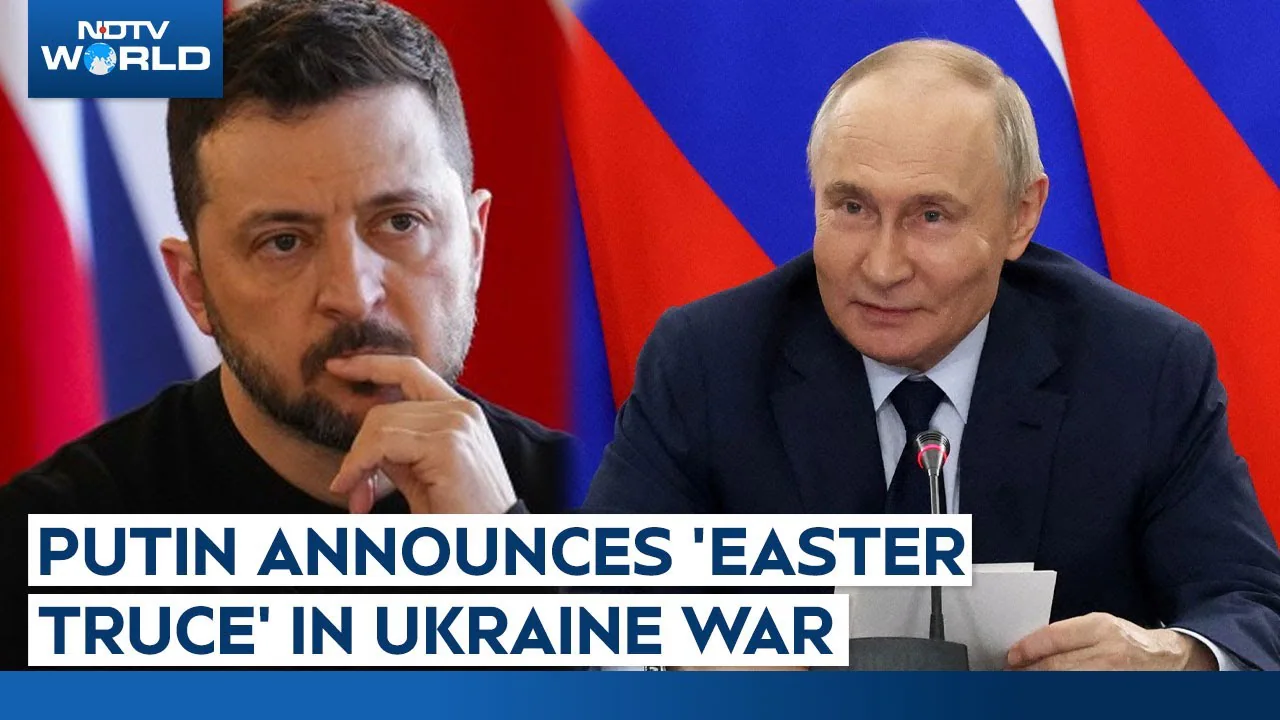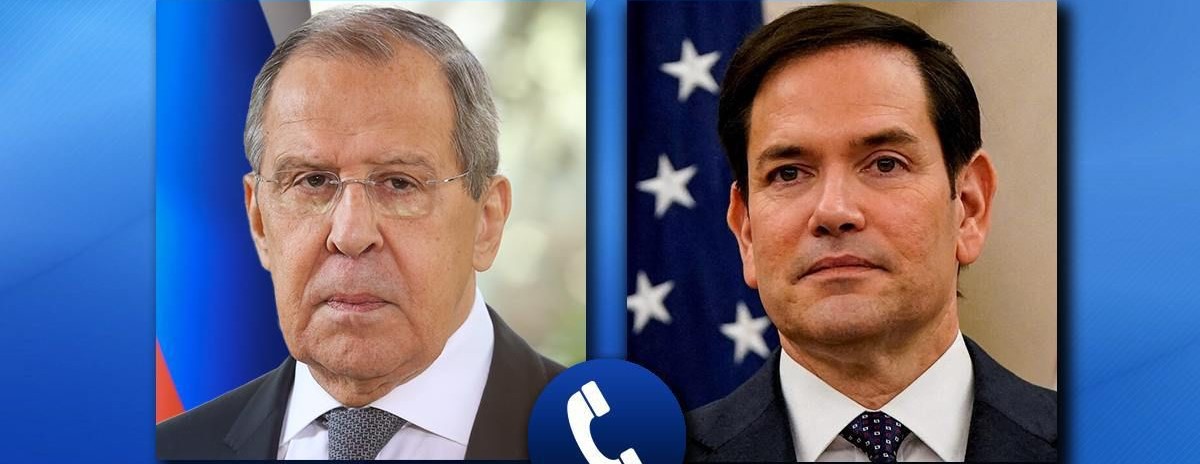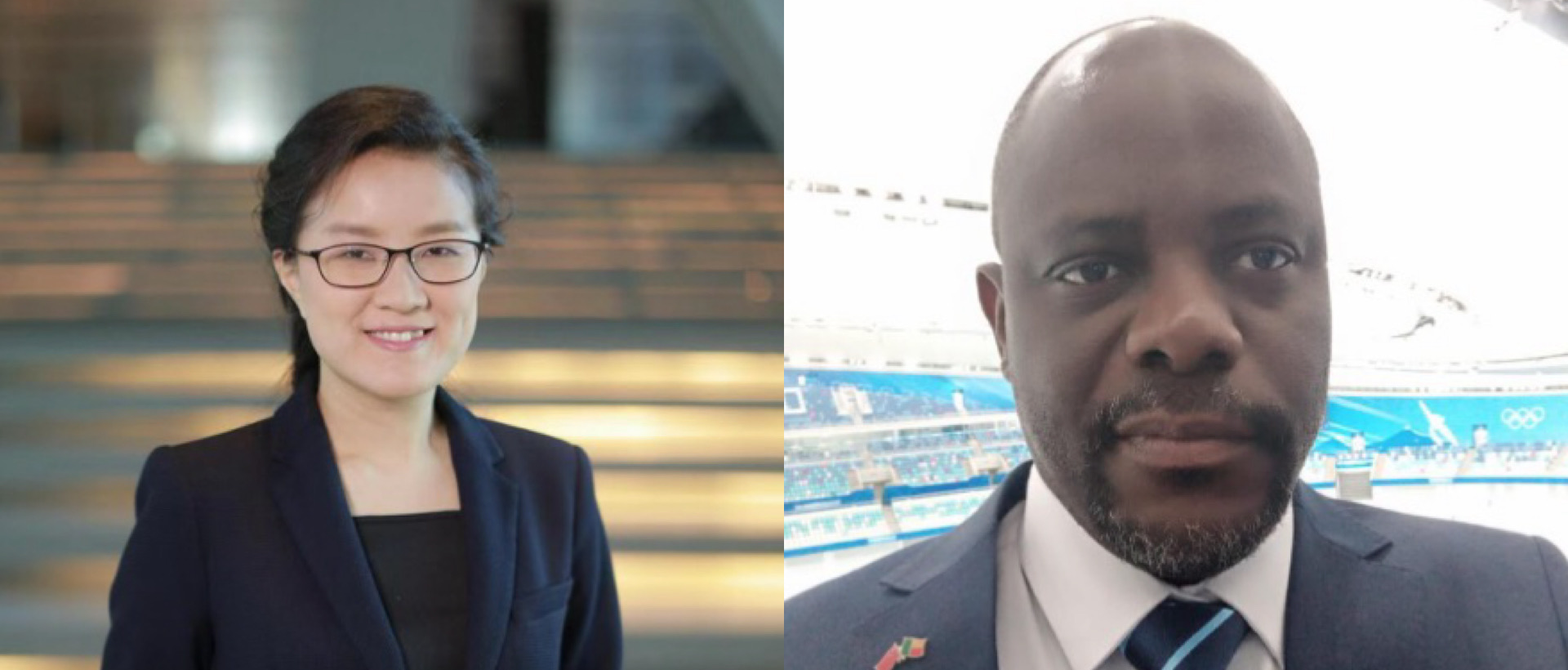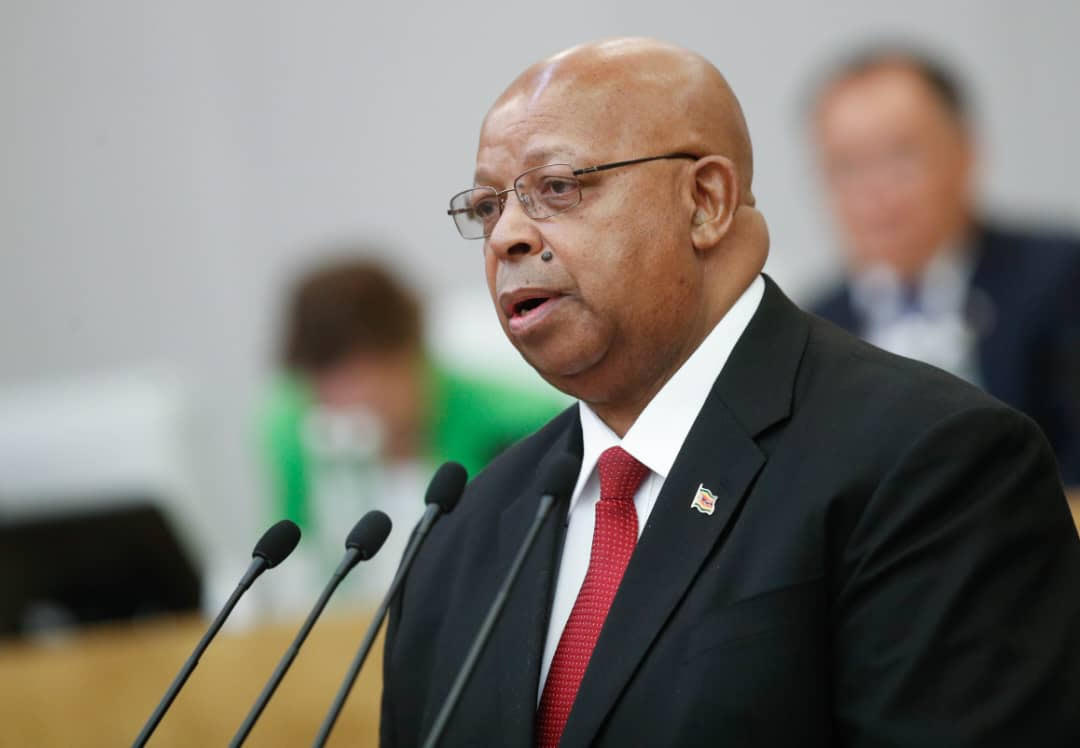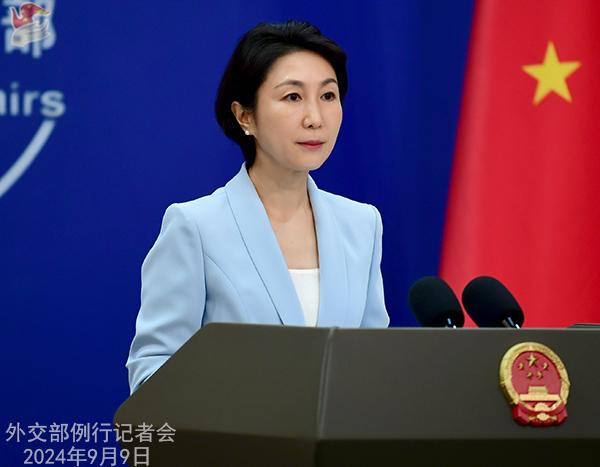
China's Foreign Ministry Spokesperson Mao Ning addresses the Press
At the invitation of Saudi Arabia’s Crown Prince and Prime Minister Mohammed bin Salman and the UAE’s Vice President and Prime Minister Sheikh Mohammed bin Rashid Al Maktoum, from September 10 to 13, Premier Li Qiang of the State Council will travel to Saudi Arabia to chair the Fourth Meeting of the High-Level Chinese-Saudi Joint Committee and visit Saudi Arabia and the UAE.
At the invitation of Secretary of the Russian Federation Security Council Sergei Shoigu, as usual practice, Member of the Political Bureau of the CPC Central Committee and Director of the Office of the Central Commission for Foreign Affairs Wang Yi will attend the 14th Meeting of BRICS High-Ranking Officials responsible for security matters/National Security Advisors in St. Petersburg, Russia from September 11 to 12.
CCTV: The FOCAC Beijing Summit was successfully held last week. Foreign Minister Wang Yi together with foreign ministers of the current and upcoming co-chairs of FOCAC met the press. Foreign Minister Wang said that the Summit sends a strong message of China and Africa seeking common development and demonstrates the firm determination of the Global South working together in solidarity. How do we understand the significance of FOCAC to China-Africa relations?

Mao Ning: FOCAC was born at the turn of the century, becoming the first platform for institutional dialogue established by China and developing countries, and the first mechanism for multilateral cooperation between China and a whole continent. Over the past 24 years since its inception, FOCAC has held four summits, nine ministerial meetings and 17 senior officials meetings. It has become an important platform for collective dialogue between China and African countries, an effective mechanism for deepening practical cooperation and a pacesetter of South-South cooperation.
Since the inception of FOCAC, China-Africa relations have leapfrogged from “a new type of partnership” to “a new type of strategic partnership” to “a comprehensive strategic and cooperative partnership” and to “an all-weather China-Africa community with a shared future for the new era,” demonstrating growing strategic significance.
China’s trade volume with Africa and investment stock in Africa increased by over 20 times and 100 times respectively. Belt and Road cooperation produced fruitful outcomes. The ten cooperation plans put forward at the 2015 FOCAC Johannesburg Summit, the eight major initiatives identified at the 2018 FOCAC Beijing Summit, and the nine programs proposed at the 2021 FOCAC Ministerial Conference in Dakar were implemented smoothly. At this year’s FOCAC Summit, the ten partnership actions were proposed, bringing China-Africa practical cooperation to a new level.
There have been a rich variety of cultural and people-to-people exchanges between China and Africa, which deepened mutual understanding between the Chinese and African people, and enhanced the traditional friendship. China has set up multiple cultural centers in Africa, established over 60 Confucius Institutes, and sent medical teams to over 40 African countries, who treated close to 300 million African patients. The two sides have witnessed inspiring stories of friendship in the new era.
At the new historical starting point, China will continue upholding the principle of sincerity, real results, amity and good faith and the principle of pursuing the greater good and shared interests. We will continue working with African members of FOCAC to implement the outcomes of the Summit and better benefit the people of both sides.
People’s Daily: To follow up on your announcement that Director Wang Yi will attend the 14th Meeting of BRICS High-Ranking Officials responsible for security matters/National Security Advisors, can you share more information on that and China’s expectation for the meeting?
Mao Ning: The 14th Meeting of BRICS High-Ranking Officials responsible for security matters/National Security Advisors will be held in St. Petersburg from September 11 to 12. As usual practice, Member of the Political Bureau of the CPC Central Committee and Director of the Office of the Central Commission for Foreign Affairs Wang Yi will attend the meeting upon invitation. During the meeting, the Chinese side will exchange views with BRICS partners on the current international security situation and major international and regional issues, and make political preparation for the BRICS Summit.
The world today is marked by changes and instabilities and fraught with complex and severe security challenges. As an important platform for emerging markets and developing countries, BRICS has been committed to upholding world peace, promoting common development, practicing multilateralism, and working for more just and equitable global governance. This is the first meeting of BRICS High-Ranking Officials responsible for security matters/National Security Advisors following the historic expansion of BRICS. China looks forward to working with BRICS partners to consolidate BRICS strategic partnership, further enrich BRICS cooperation in political and security areas, provide new impetus for greater BRICS cooperation, and contribute to world peace and security.
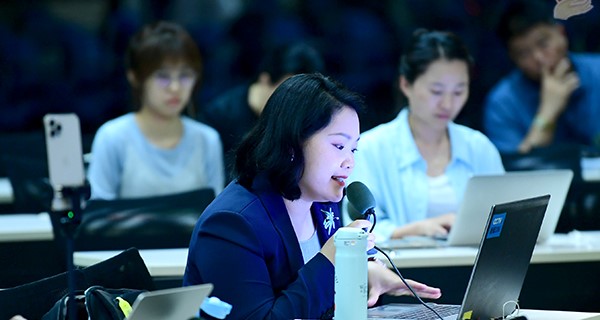
Hubei Media Group: During the Beijing Summit of the Forum on China-Africa Cooperation, President Xi Jinping announced that China will carry out an “action for a mine-free Africa.” Could you share more details with us?
Mao Ning: Africa is among the regions most severely threatened by landmines and Africans have been beset by mines. For a long time, China has been actively committed to humanitarian assistance and cooperation in mine action, taken concrete actions to support Ethiopia, Angola, Eritrea, Chad and other countries in their capacity-building for mine action, and contributed to protecting local civilians and promoting socioeconomic development.
Peace and security cooperation is part and parcel of building an all-weather China-Africa community with a shared future for the new era. During the FOCAC Beijing Summit, President Xi Jinping announced an “action for a mine-free Africa,” a practical step by China to implement the Global Security Initiative in Africa. China stands ready to advance mine action cooperation with African countries through assistance supplies, personnel training and on-the-ground guidance to help Africa get rid of mines as early as possible and achieve secure, stable and sustainable development.
Polish Press Agency: Last week, Polish Foreign Minister Radosław Sikorski visited Malaysia, Singapore and the Philippines. In each of these countries, he stressed the importance of resolving disputes in the South China Sea, without resorting to violence, use of force or economic coercion. Regardless of its size, every country must respect the award of the arbitral tribunal and international law. What’s China’s comments?
Mao Ning: China stands for peacefully resolving disputes in the South China Sea through negotiation and consultation with countries directly concerned on the basis of respecting historical facts and observing international law. Regarding the so-called South China Sea arbitration, China has made its position clear multiple times. The award is illegal and null and void.
DPA: According to German media report, two German military vessels will transit through the Taiwan Strait in mid-September. What is the Foreign Ministry’s comment?
Mao Ning: Taiwan is an inalienable part of China’s territory. We made our position clear on similar questions. The waters of the Taiwan Strait, from both shores toward the middle of the Strait, are China’s internal waters, then territorial sea, then contiguous zone, and then exclusive economic zone. China respects countries’ right to navigation in relevant waters in accordance with China’s laws and international law, including UNCLOS. But we firmly oppose any act of provocation under the pretext of freedom of navigation by relevant countries that harms China’s sovereignty and security.
Reuters: Malaysia’s Foreign Ministry is conducting internal investigation into the leak of a diplomatic note sent by China’s Foreign Ministry to the Malaysian Embassy in Beijing in February. This was reported by the Philippines’ news outlet. It said that China had sent a two-page document to the Malaysian Embassy in Beijing in February, asserting that Kuala Lumpur’s oil and gas exploration in the South China Sea infringed on China’s sovereignty. Can MOFA confirm if China told Malaysia this?
Mao Ning: China is shocked by the news release by the Philippine media. This is apparently ill-motivated. We noted that Malaysia’s Ministry of Foreign Affairs has issued a statement in response. China and Malaysia, as countries concerned in the South China Sea issue, have maintained close communication on properly addressing differences and disputes between the two sides, and have jointly made good contribution to the growth of China-Malaysia relations and regional peace and stability.
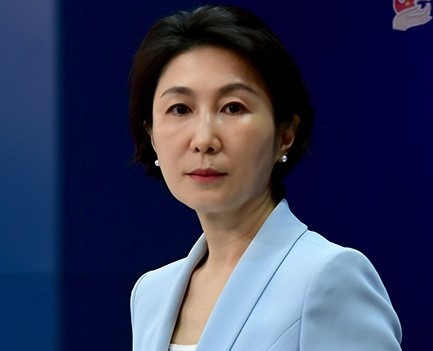
CCTV: The session of the Council of Foreign Ministers of the Organization of Islamic Cooperation (OIC) was held recently in the Cameroonian capital, Yaoundé. The session spoke highly of the progress in China-OIC cooperation in recent years. What’s China’s comments?
Mao Ning: On August 29 and 30, the 50th session of the Council of Foreign Ministers of the Organization of Islamic Cooperation (OIC) commended the progress in China-OIC cooperation and looked forward to further advancing cooperation with China. China welcomes the statements.
China and the Islamic world share traditional friendship. Both sides firmly support each other in upholding respective core interests and enjoy fruitful results in their Belt and Road cooperation. China stands ready to continue working with Islamic states to implement the Global Development Initiative, the Global Security Initiative, and the Global Civilization Initiative, and promote world peace, stability and sustainable development.
The OIC is a symbol of the solidarity of Islamic states and an important bridge to promote relations between China and Islamic states. China stands ready to continue deepening strategic communication with the OIC, conducting cooperation in various fields, and making continued progress of bilateral relations.
TV Asahi: Last weekend, Internet influencer “Ya Ren” (asianman) posted a video online, in which he was asked by a person accompanying Japanese tourists to make room for them to take pictures in the Yuanmingyuan Park. Ya Ren refused and the two sides quarreled. The video sparked heated online discussion. Many Japanese nationals in China expressed concerns. What is the Foreign Ministry’s comment?
Mao Ning: I’m not familiar with the specifics you mentioned. I will not comment on personal conduct. But what I can tell you is that China is an open and inclusive country, and we do not have in place any discriminatory practice against any particular country.
Ukrinform News Agency: Indian media reported yesterday that National Security Adviser to the Prime Minister of India, Ajit Doval, this week will visit Moscow to discuss peace efforts aimed at resolving Russia’s ongoing war against Ukraine. How will you comment on India’s peace efforts, and can you share with us the Chinese government’s next steps in seeking to resolve the conflict between Russia and Ukraine that has been continuing for two and a half years?
Mao Ning: On the Ukraine issue, we are committed to promoting talks for peace and support all efforts conducive to the peaceful settlement of the crisis. China will continue working with the international community to accumulate conditions for a political settlement.
Bloomberg: I just want to follow up on a question about the German plan to transit the Taiwan Strait. You said that the Taiwan Strait was internal waters and contiguous zone. Is that the whole of the Strait or is that just parts of the Strait? My question is, how much of the Strait is international waters from the Chinese perspective? And how much of it is internal waters and contiguous zones?
Mao Ning: The waters of the Taiwan Strait, from both shores toward the middle of the Strait, are China’s internal waters, then territorial sea, then contiguous zone, and then exclusive economic zone. I think I already answered your question.
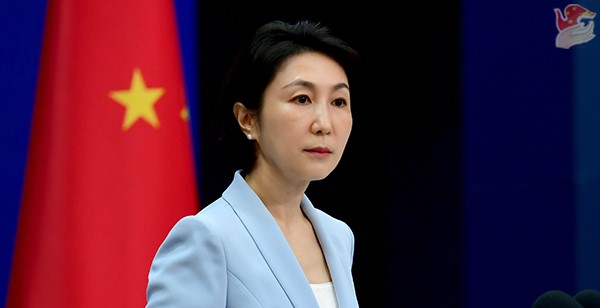
Shenzhen TV: On September 6, the US government released the so-called updated Hong Kong business advisory, warning that the Law of the People’s Republic of China on Safeguarding National Security in the Hong Kong Special Administrative Region and the March 2024 Safeguarding National Security Ordinance further erode fundamental freedoms and protections for human rights in Hong Kong and that businesses should be aware that the risks they face in the PRC are now increasingly present in Hong Kong. What’s China’s comment?
Mao Ning: The so-called updated Hong Kong business advisory concocted by the US makes groundless attack against Hong Kong’s national security laws and smears the business environment in Hong Kong. China firmly opposes and strongly condemns it. After the roll-out of the Law on Safeguarding National Security and the Safeguarding National Security Ordinance, Hong Kong enjoys better rule of law, a more favorable business environment and more consolidated foundation for long-term prosperity and stability. According to the latest report released by the Hong Kong SAR government, Hong Kong saw all-time high figures for the registration of both new local companies and non-Hong Kong firms in the first half of this year. The World Competitiveness Yearbook 2024 indicates that Hong Kong ranks fifth globally in competitiveness. In 2023, Hong Kong was the fourth receiver of foreign direct investment worldwide and the 10th largest exporter of merchandise trade.
The US needs to respect facts, respect China’s sovereignty and the rule of law in Hong Kong, and stay prudent on issues related to Hong Kong.
Bloomberg: Just to follow up. Do you recognize that the center of the Taiwan Strait is international waters in which there is freedom of navigation for all nations? In your statement now on your understanding of the waters, you didn’t actually say that it’s international waters. So is the center of the Strait beyond 12 nautical miles on either side of the Strait international waters in which any nation can travel freely?
Mao Ning: Both sides of the Taiwan Strait are China’s territory. The waters of the Taiwan Strait, from both shores toward the middle of the Strait, are China’s internal waters, then territorial sea, then contiguous zone, and then exclusive economic zone. China respects countries’ right to navigation in relevant waters in accordance with China’s laws and international law, including UNCLOS. But we firmly oppose any act of provocation under the pretext of freedom of navigation by relevant countries that harms China’s sovereignty and security.
Bloomberg: Your mention of the special economic zone makes that out to be having international legal basis in the sense of international waters. It’s international waters first, and then it’s also China’s exclusive economic zone. Is it not?
Mao Ning: The UNCLOS clearly states the specific legal regime of the exclusive economic zone, which you may refer to.
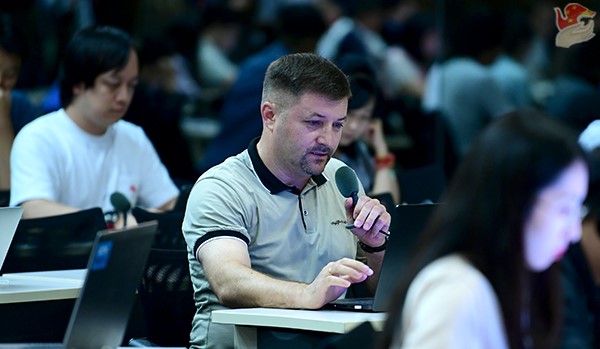
(C) Foreign Ministry of the People’s Republic of China

